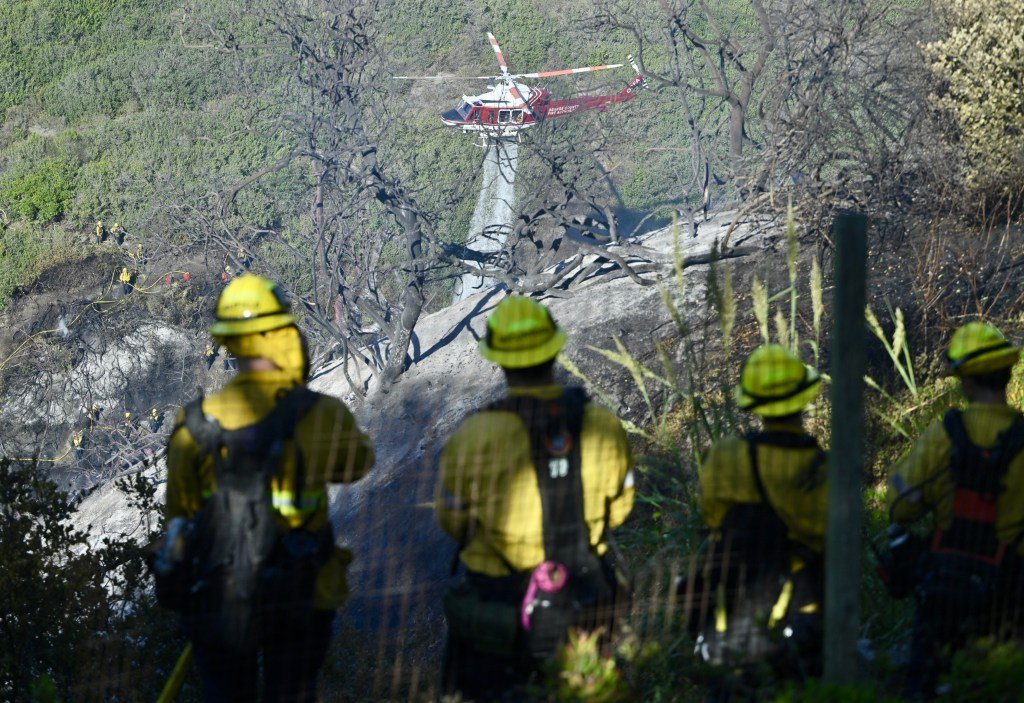Title: Enhancing Wildfire Response: Insights from the Rancho Fire in Laguna Beach
Introduction
The recent Rancho fire in Laguna Beach underscored the importance of preparedness and coordination among emergency responders. Thanks to a mock tabletop scenario conducted earlier in Aliso Viejo, multiple fire and law enforcement agencies were able to rapidly respond to the blaze, which was fueled by previous experiences with local wildfires. As agencies came together for this simulation, they established a framework that ultimately facilitated quick action, safeguarding life and property. This article delves into the details of this training, the fire response, and the continuous need for community vigilance.
A Unified Approach to Wildfires
When the Rancho fire broke out, agencies including the Orange County Fire Authority (OCFA), CalFire, and local police were already primed for action. The inter-agency tabletop exercise was designed to simulate a wildfire scenario in fire-prone areas of Orange County. The feedback from past wildfires, like the Coastal, Aliso, and Bond fires, played a pivotal role in shaping strategies for effective communication, evacuation plans, and resource allocation. “Getting all parties into these rooms is critical,” stated OCFA Division 5 Chief Mike Summers, emphasizing the importance of teamwork in these situations.
Swift Action Preventing Catastrophe
As the Rancho fire erupted and rapidly expanded, professionals were able to deploy resources swiftly. Firefighters reported that the fire grew from a small blaze to 30-foot flames in minutes. However, due to their advanced planning and rehearsed communication protocols, within 20 minutes of ignition, multiple agencies were on the scene, employing strike teams and air support. Capt. Mike Peters from Laguna Beach Police noted, “If this had gone on longer, we would have had more personnel to throw at this. We had the best outcome possible because of the quickness of the response.” The fire was contained at 4.6 acres, illustrating the effectiveness of inter-agency coordination.
Benefits of Proactive Training
The successful containment of the Rancho fire can be largely attributed to the recent joint training exercises. These efforts fostered relationships among responders, ensuring effective communication and problem-solving during emergencies. Chief Summers highlighted these relationships as crucial, mentioning that knowing one another before incidents occurred leads to better coordination. The upcoming tabletop session in Yorba Linda will further this effort, allowing city managers and officials to engage in meaningful dialogue regarding future wildfire preparedness.
Community Involvement and Vigilance
Laguna Beach Mayor Alex Rounaghi praised the seamless coordination among various agencies, emphasizing, “Wildfire preparedness is truly a team sport.” This collective effort is vital in a region where fires can cross city limits and challenge local resources. While officials celebrated the successful response to the Rancho fire, they acknowledged that vigilance must remain a priority. The Laguna Beach Fire Chief, Niko King, warned that though conditions were favorable this time, future wildfires could present much greater challenges.
Looking Ahead
Even after the fire was declared out, further assessments and strategic planning were already in motion. Consultations for a comprehensive fire protection plan are underway, funded by a grant aimed at enhancing wildfire readiness. These proactive measures illustrate the commitment of city officials and emergency agencies to anticipate and mitigate risks associated with wildfires. King remarked on the necessity of being prepared for the worst conditions, reinforcing the reality that the potential danger remains ever-present in fire-prone communities like Laguna Beach.
Conclusion
The recent Rancho fire served as a potent reminder of both the significance of thorough emergency preparation and the collaborative spirit among agencies dedicated to safeguarding communities. With past experiences driving future training, the inter-agency response demonstrated that a well-coordinated strategy can yield remarkable outcomes in the face of crisis. Nevertheless, the ongoing threat of wildfires necessitates continuous vigilance and preparedness, ensuring community safety in the unpredictable environment of Southern California. As Laguna Beach and surrounding areas strive to refine their approaches, the lessons learned from this fire will undoubtedly shape strategies for future incidents.









